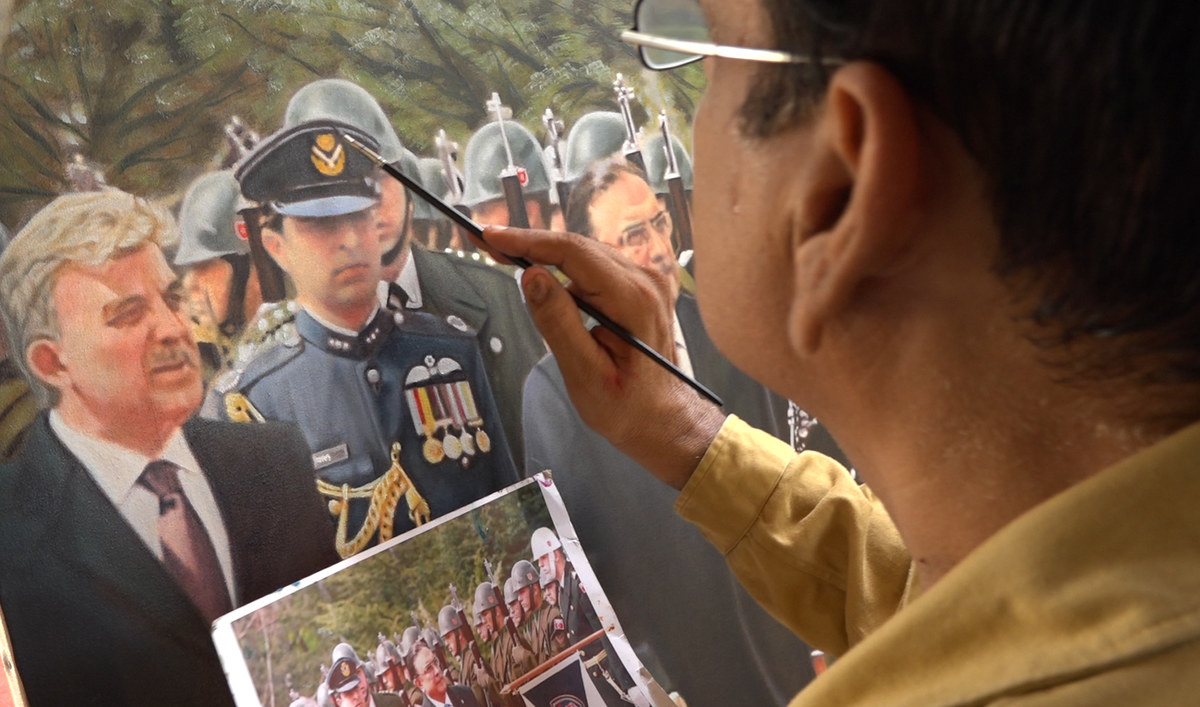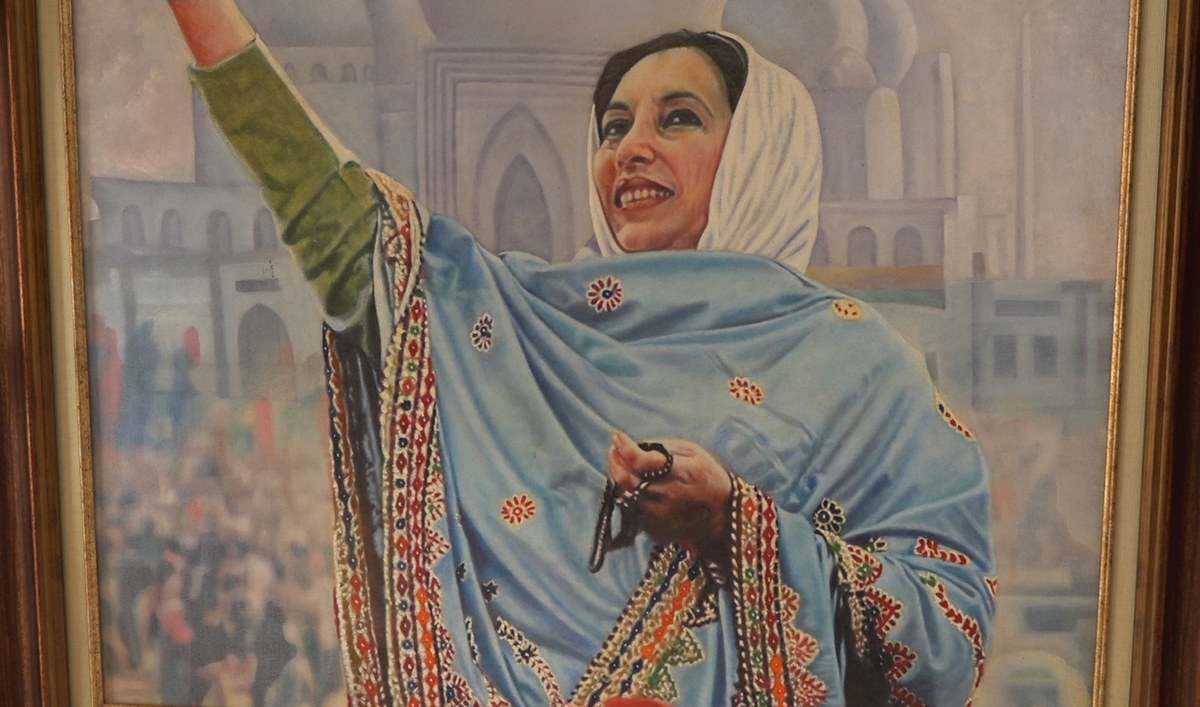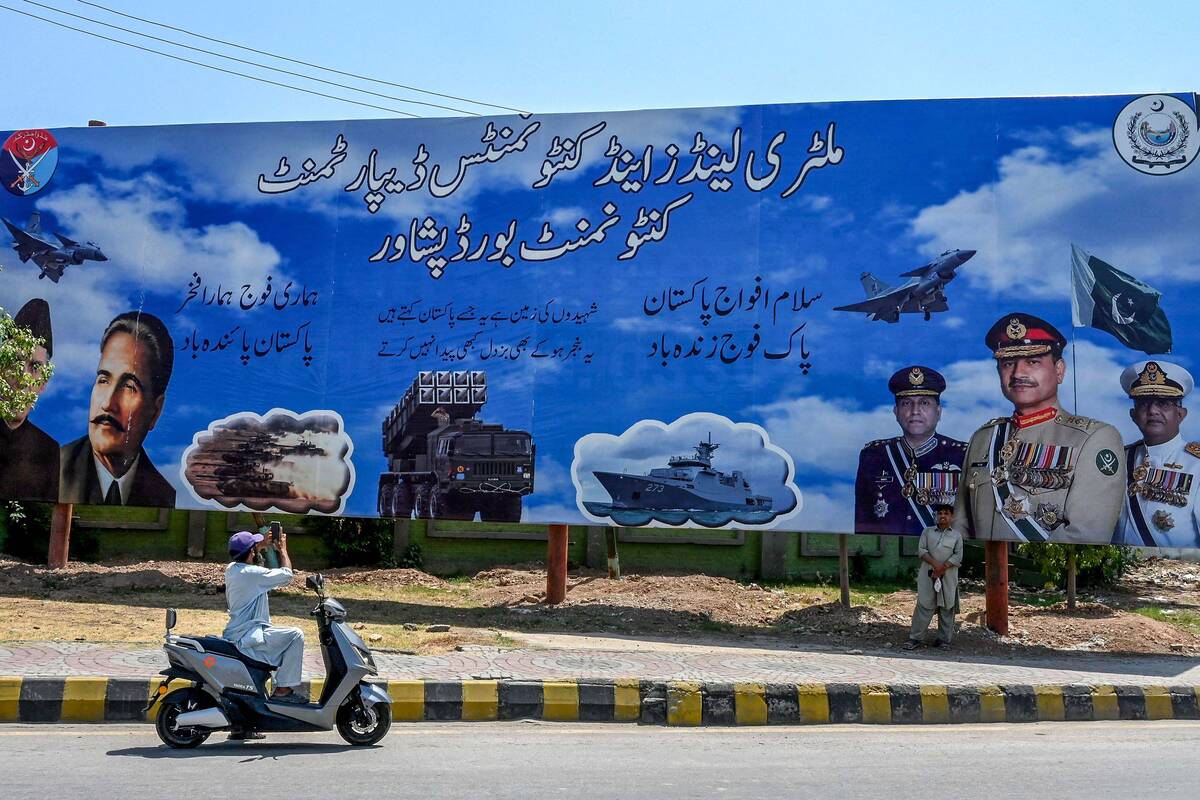KARACHI: It was a typical work day for a cop named Naeem Khan sometime in the 1990s when a renowned artist was brought in over a domestic violence complaint to the Ajmer Nagri Police Station in Pakistan’s southern port city of Karachi.
Though his interaction with the artist that day lasted only a few hours before the case was closed, the two went on to form a mentor-student bond that lasted decades, turning the tough officer into a skilled artist.
“Throughout this relationship, I had the opportunity to learn a great deal from [the artist],” Khan told Arab News as he returned from patrolling the city in a police van. He declined to name the artist, who died in 2018.

The still image taken from a video shows cop named Naeem Khan working on a painting at his residence in Karachi, Pakistan on June 6, 2023. (AN Photo)
Initially, the artist guided the police officer in how to use shades and create color palettes but later taught him to paint portraits also, with Khan going on to paint stills of both senior police officers and top politicians.
But though he was brimming with passion for art, Khan’s demanding job fighting crime in Karachi — especially his years working in Lyari, a poor neighborhood known for crime and gang wars — did not allow the police officer to devote much time to painting. But once he was posted to a relatively calmer police station in the city in 2013, he had spare time to pursue art once again.
That was when he began creating portraits of Pakistani leaders like Benazir Bhutto and Imran Khan, and the rulers of Dubai, as well as exploring the art of calligraphy.
“Currently, I am working on various other art forms. I work on landscapes, calligraphy, portraits, and other contemporary styles, as I have made significant progress,” Khan said.

The still image taken from a video shows a painting of Pakistan's ex prime minister Benazir Bhutto made by cop named Naeem Khan at his residence in Karachi, Pakistan on June 6, 2023. (AN Photo)
When asked why his paintings did not depict crimes and the dark world he dealt with as a cop, Khan said: “I will do what I have learned from my master, who used to create portraits of beautiful girls, beautiful horses, and human beings.”
In terms of striking a balance between his tough job as a police officer and his passion for art, he said the latter allowed him some time to relax.
“In fact, my police job is hard and tiring, so whenever I find even a small amount of free time, be it five minutes or half an hour, I turn to my artwork,” he said.
Khan said that it was not difficult for him to shift his focus, as he took inspiration from his crime scenes and patrol work in so far as it had taught him to be able to fully immerse himself in any environment he found himself in th middle of.
Currently serving as a deputy superintendent of police (DSP), Khan will retire this September after which he hopes he will be able to devote himself entirely to art.
“I will be able to spend more time with colors,” he said, “which is what I truly enjoy.”



















